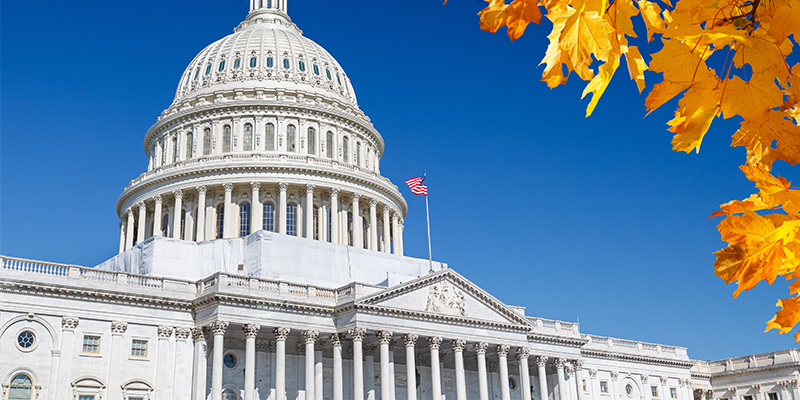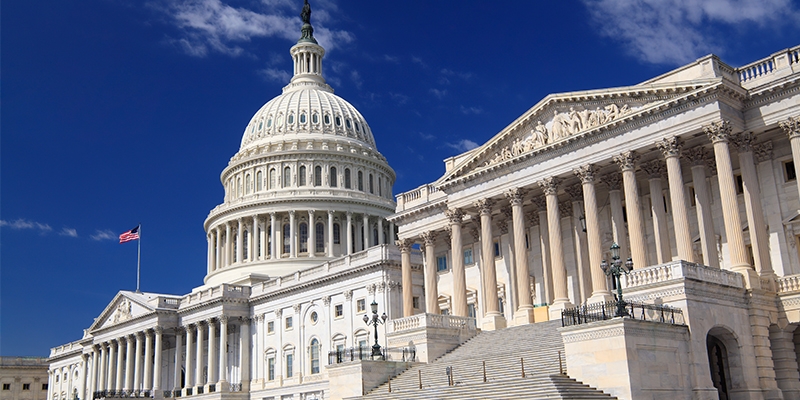The 2022 midterm congressional elections certainly did not turn out as many had expected. With President Joe Biden’s approval ratings stuck in mid-40 percentile range, inflation being the top issue for the largest number of voters, and with the president’s party historically losing seats, the conventional wisdom was the Republicans would ride a red wave of voter anger against Biden and his party and easily take back the majority in the House of Representatives and maybe the Senate as well. Instead, a week after election day, disappointed Republicans were still waiting to close in on the needed 218 seats that makes a majority in the House, having won 217 seats as of last Tuesday, while already knowing they would remain in the minority in the Senate.
As expected, recriminations and finger-pointing began almost immediately, with many in the Republican party blaming former President Donald Trump and his support of candidates in Republican primaries who echoed his refusal to accept the legitimacy of the 2020 presidential election. These candidates overwhelmingly lost in the general election – in states Republicans had thought they should have won. Others in the Republican caucus, however, are turning their ire toward their congressional leadership, casting blame on them for the underwhelming results. Accordingly, Kevin McCarthy’s plan to become speaker of the House has become more complicated, and his path less assured. Trump and some Republicans in the Senate, meanwhile, are taking aim at the Senate’s Republican leader, Mitch McConnell. For their part, Democrats have their own questions since the current speaker, Nancy Pelosi, has not stated whether she intends to remain as the Democrats’ minority leader in the next Congress.
The first order of business after congressional midterm elections is for the parties to choose their leadership in the House and Senate. The speaker of the House is chosen by a majority of the entire House – both Democrats and Republicans – so Kevin McCarthy needs 218 members to support him when the vote for speaker is held on Jan. 3 when the new Congress is seated. But first, he must get the support of his own party caucus, which convened earlier this week. At that meeting, a number of Republican House members voiced their opposition to McCarthy’s nomination, with Arizona Congressman Andy Biggs declaring he would run against him. McCarthy won with a vote count of 188 to 31.
Between now and Jan. 3, McCarthy will have to negotiate with the Republican holdouts who are demanding a number of rule changes that would give them more power over committee assignments and policy. They are also seeking a rule to allow Republican members to call for a vote to remove McCarthy from the speakership if they choose.
On the Senate side, McConnell is being challenged by Florida Senator Rick Scott, the chairman of the National Republican Senatorial Committee, who was tasked with helping Republican senate candidates win. McConnell and Scott were at odds over campaign strategy, with McConnell urging Scott to be more active in Republican primary contests and ensure that Republicans end up with the best candidates for the general election. While a few senators have asked McConnell to delay the vote for party leader until after the Georgia runoff between Republican Herschel Walker and Democratic Senator Raphael Warnock, he has refused and will go ahead this week with a vote. Few think that Scott has enough votes to defeat McConnell, but the openly hostile dispute is an indication of the dissatisfaction some of the populist wing of the Republican caucus has with McConnell.
For the remaining few weeks before it is set to adjourn, the lame-duck Congress will need to keep the government running by passing a continuing resolution (CR) before Dec. 16, which is the date the current CR expires. If no agreement is reached, then a government shutdown the week before Christmas will result. The alternative to a short-term CR is a larger, omnibus appropriations bill which could serve as the legislative vehicle for a host of Democratic and Republican priorities, many of which are tax-related.
Measures with bipartisan support on retirement income, needed modifications to the research and development (R&D) tax credit, and some technical corrections could be included in an omnibus appropriations tax title. In addition, Democrats want to delay the expiration of the expanded child tax credit in place during the COVID-19 pandemic, and Republicans would like to delay the expiration or phase-down of certain business tax incentives. Negotiations between the parties could lead to such provisions becoming part of the broader package.
Finally, Democrats want to come to an agreement with Republicans before the end of the year on increasing the national debt limit, and avoid a repeat of past showdowns which rattle the financial markets. Because the debt limit will not be reached until approximately the third quarter of 2023, however, Republicans are likely not to agree, preferring to wait until the next Congress when they would be in control and have added leverage in negotiations with the White House.








